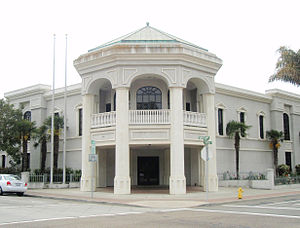|
Listen to this Article
|
 Sexual harassment can now be classified as a hate crime. According to a recent ruling in the matter of Ventura v. ABM Industries Incorporated, the California Court of Appeal upheld upheld a lower court’s verdict, concluding that “hate is not an element” in determining whether the section of the Ralph Act (Civil Code § 51.7) which refers to threats or violence “because of” an individual’s gender applies to a given case – in this instance one of workplace sexual harassment.
Sexual harassment can now be classified as a hate crime. According to a recent ruling in the matter of Ventura v. ABM Industries Incorporated, the California Court of Appeal upheld upheld a lower court’s verdict, concluding that “hate is not an element” in determining whether the section of the Ralph Act (Civil Code § 51.7) which refers to threats or violence “because of” an individual’s gender applies to a given case – in this instance one of workplace sexual harassment.
After experiencing sexual harassment and intimidation by her supervisor, Sylvia Ventura – at that time a janitor for ABM – sued the company for negligent supervision and hiring, as well as violation of the Ralph Act. According to the statute, “All persons within the jurisdiction of this state have the right to be free form any violence, or intimidation by threat of violence, committed against their persons because of … ” certain protected characteristics, including sex (emphasis added).
Based on the evidence produced at trial, after becoming Ventura’s supervisor, Carlos Manzano began flirting with her, complementing her, and at one point even told her that he loved her. After seeing his advances rejected, Mezano’s behavior became increasingly harassing. He would check in on Ventura an inordinate number of times, stand extremely close to her, complement her, stare at her butt, and ask prying questions about her family. Feeling increasingly fearful, Ventura again asked Manzano to back off.
But it didn’t stop there. The more Ventura expressed her discomfort, the more aggressive Manzano became.
In one instance, he approached Ventura while she was cleaning an office, grabbed her arm and shoved her against the wall, and proceeded to tell her that he liked her and demanded her attention. On another occasion, Manzano tried to get Ventura to kiss him in the elevator.
By far the most disturbing, however, was the event that took place on August 22, 2005. Manzano, who had been known to drink at work, walked into the bathroom Ventura was cleaning, closing the door behind him, and proceeded to grab her arms and began physically accosting her – squeezing her and rubbing himself against her, placing his arm around her neck to keep her from screaming, and at one point even biting her.
After hearing the evidence, the jury gave affirmative answers to the special verdicts being considered. Convinced that Ventura’s sex was a motivating factor for Manzano’s harassing behavior, the jury agreed that the subsequent harm caused constituted “acts of violence.” In addition, the jury found that the company knew of Manzano’s conduct after Ventura complained about it and, after failing to address it, was guilty of ratifying those acts. The jury found likewise with regard to “threats of violence” and the company’s ratification of the same.
Finally, regarding Ventura’s complaint of “negligent hiring, supervision or retention,” the jury agreed that Manzano was not only unfit for the supervisory position he held, but also held that the company’s knowledge of the aforementioned harassment and subsequent failure to address the issue constituted a substantial factor in the harm caused to Ventura.
As a result of the jury’s findings, Ventura was awarded $100,00 in compensatory damages, $550,000 in attorney fees and costs, as well as a $25,000 civil penalty afforded to Ventura by the Ralph Act.
In its affirmation of the lower court’s verdict, Court of Appeal disagreed with the defense’s argument that the Ralph Act’s use of the phrase “because of” limits the statute’s applicability to act’s based specifically on hate. “We find that hate is not an element, though we hasten to add the even if it was, we would reject defendants’ argument that Manzano’s protestations of love mean that there was no evidence of hate,” wrote Justice Armstrong. The majority opinion continues:
Nor do we agree with defendants that “because of” logically means “hatred.” Section 51.7 provides that all persons “have the right to be free from any violence, or intimidation by threat of violence, committed against their persons or property because of …” specified characteristics, including sex, and provides for a civil remedy for violation of that right. Nothing in the statute requires that a plaintiff prove that the offending act was motivated by hate.
Leaning on decisions reached in D.C. v. Harvard-Westlake School (2009) 176 Cal.App.4th 836, 844, and Ramirez v. Wong (2010) 188 Cal.App.4th 1480, 1486, the Court reasserted its position that the a cause of action under the Ralph Act by no means necessitated the existence of hatred nor proof that such was the basis for the act in question. Instead, Justice Armstrong argued, the term “hate crime” as it pertains to Harvard-Westlake and Ramirez merely refers to a “loose description of several statutes.”
Calling the use of the term an “unfortunate use of the expression,” the opinion goes on to explain that section 51.7 neither defines a crime nor a requirement to prove hate in order to invoke it. To underscore this point, the Court looked to the legislative intent- and text-based argument found in Winarto v. Toshiba America Electronic Components (9th Cir. 2001) 274 F.3d 1276, 1289, which states:
It may be true that this section and other similar California statutes were enacted ‘in response to [the] alarming increase in hate crimes.’ [Citation.] Nevertheless, there is no requirement that the violence be extreme or motivated by hate in the plain language of the sections, or in the cases construing them; there is also no requirement that the act constitute a crime. If the California legislature wanted to limit the reach of the statute to extreme, criminal acts of violence, it could have explicitly said so. What it did instead was create civil liability which sweeps more broadly than the common, colloquial meaning of the phrase ‘hate crime.’ Without clear evidence that the legislature intended otherwise, we will not disturb the plain meaning of the statute.
In other words, no hate – or criminal activity at all, for that matter – is necessary for certain acts to fall within purview of a statute passed to combat hate crimes.
With no statutory language or demonstrable legislative intent to prove its contention to the contrary, the defense was left lacking a compelling argument to show that the Ralph Act was inappropriately invoked in Ventura’s complaint. As a result, victims of workplace harassment are no longer limited by the one-year statute of limitations applicable under the Fair Employment and Housing Act (FEHA), nor are they required to go through the process of filing an administrative charge with the DFEH. Perhaps the most notable benefit afforded to sexual harassment victims, though, is the absence of the “hostile work environment” standard prescribed by the FEHA.
Responding the opinion, Keith Dobyns from Lynberg & Watkins warned employers, “Any actions by one employee towards another that involve violence or threats of violence should be addressed and remedied immediately” in order to avoid potential legal costs made possible by the Court’s decision.
It’s nice to finally have their attention.


